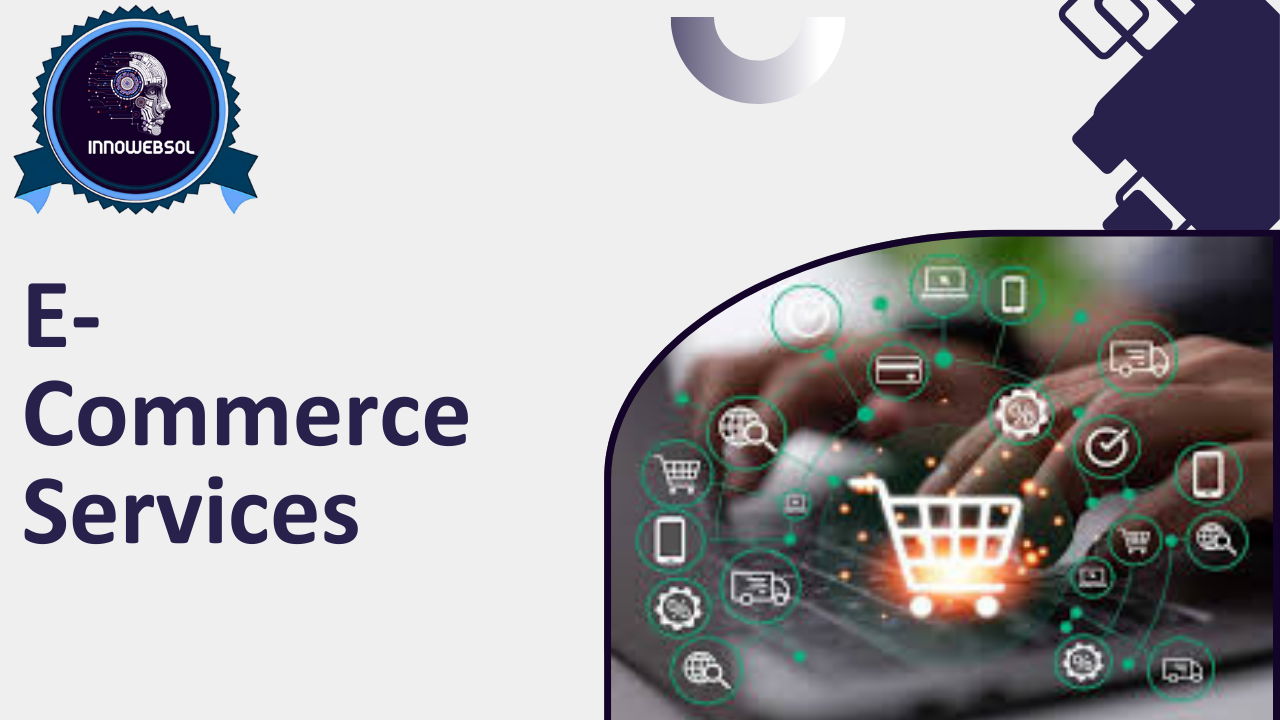In today’s digital world, e-commerce services have revolutionized the way businesses sell products and services online. Whether you own a small business or a large enterprise, e-commerce solutions can help you reach more customers, increase sales, and improve customer satisfaction. In this guide, we will explore the various aspects of e-commerce services, their benefits, and how they can help grow your online business.
What Are E-Commerce Services?
E-commerce services refer to the different solutions and tools that help businesses sell products or services online. These services include website development, payment gateways, inventory management, digital marketing, customer support, and logistics. A well-optimized e-commerce store can provide a seamless shopping experience for customers and boost business growth.
Types of E-Commerce Services
1. E-Commerce Website Development
A user-friendly and responsive website is essential for any online store. E-commerce website development includes designing, building, and maintaining an online store that allows customers to browse, select, and purchase products. Popular platforms for building e-commerce websites include Shopify, WooCommerce, Magento, and BigCommerce.
2. Payment Gateway Integration

Secure payment processing is a critical aspect of e-commerce. Payment gateway services like PayPal, Stripe, and Razorpay allow businesses to accept online payments from customers through credit cards, debit cards, digital wallets, and bank transfers. A reliable payment gateway ensures secure transactions and builds customer trust.
3. Inventory and Order Management
Managing stock levels, tracking orders, and processing returns efficiently is crucial for a successful e-commerce business. Inventory management software like Zoho Inventory, TradeGecko, and Orderhive helps businesses automate stock management, reducing errors and improving efficiency.
4. Search Engine Optimization (SEO) for E-Commerce
SEO plays a vital role in attracting organic traffic to an e-commerce website. Optimizing product descriptions, images, and meta tags with relevant keywords improves search engine rankings. Implementing structured data and semantic SEO techniques helps e-commerce stores rank for multiple related search terms, increasing visibility and sales.
5. Digital Marketing Services
Promoting your online store through digital marketing strategies is essential to drive traffic and increase sales. Key digital marketing services include:
Search Engine Marketing (SEM): Running paid ads on Google and Bing to reach potential customers.
Social Media Marketing (SMM): Engaging with customers through Facebook, Instagram, and Twitter.
Email Marketing: Sending promotional emails to keep customers informed about new products and offers.
Content Marketing: Creating blogs, videos, and infographics to educate and attract customers.
6. Customer Support and Chatbots
Providing excellent customer support enhances customer satisfaction and builds brand loyalty. AI-powered chatbots and live chat support help businesses respond to customer inquiries quickly, reducing wait times and improving user experience.
7. Logistics and Shipping Services
Fast and reliable shipping is a key factor in e-commerce success. E-commerce logistics services include order fulfillment, package tracking, and delivery management. Companies like FedEx, DHL, and UPS provide seamless shipping solutions to ensure timely deliveries.
Benefits of E-Commerce Services
1. Global Reach
Unlike traditional brick-and-mortar stores, e-commerce allows businesses to reach customers worldwide. This expands market opportunities and increases sales potential.
2. Lower Operational Costs
Running an online store eliminates the need for a physical shop, reducing costs like rent, utilities, and staff salaries. Automation in inventory management and order processing further cuts down expenses.
3. Convenience for Customers
E-commerce provides a 24/7 shopping experience, allowing customers to shop anytime and from anywhere. Features like multiple payment options, fast delivery, and easy returns enhance convenience.
4. Data-Driven Decision Making
E-commerce platforms offer analytics and reporting tools that provide insights into customer behavior, sales trends, and product performance. Businesses can use this data to improve marketing strategies and optimize inventory management.
5. Scalability and Growth

E-commerce services allow businesses to scale operations easily. Whether adding new products, expanding to new markets, or increasing advertising efforts, online stores offer flexibility for growth.
How to Choose the Right E-Commerce Services for Your Business
1. Understand Your Business Needs
Identify your business goals and the type of products or services you sell. Choose e-commerce solutions that align with your business model and target audience.
2. Select the Right E-Commerce Platform
Compare platforms like Shopify, WooCommerce, and Magento based on factors like pricing, customization options, and ease of use.
3. Prioritize Security and Payment Options
Ensure that your e-commerce website supports secure payment gateways and complies with industry security standards to protect customer data.
4. Focus on SEO and Marketing
Choose an e-commerce service provider that offers SEO and digital marketing solutions to increase your website’s visibility on search engines.
5. Evaluate Customer Support Services
Opt for a platform or service provider that offers reliable customer support, including technical assistance and troubleshooting.
Final Thoughts
E-commerce services play a crucial role in the success of online businesses. From website development and payment processing to digital marketing and customer support, these services ensure a seamless shopping experience for customers. By leveraging the right e-commerce solutions, businesses can increase sales, expand their reach, and stay competitive in the ever-growing online marketplace.
If you are looking for expert e-commerce services to build, optimize, and grow your online store, consider professional solutions tailored to your business needs. A well-optimized e-commerce strategy can help you achieve long-term success and drive more revenue.


